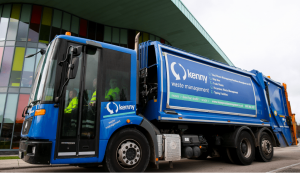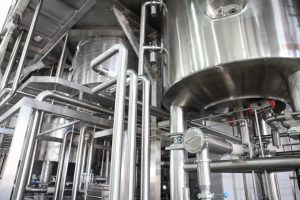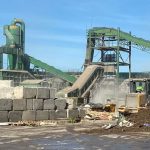The UK currently produces around 9.5 million tonnes of food waste each year. Some of that food waste comes from our commercial customers, and it’s our responsibility to provide a first-class service and process that waste responsibly.

Most of us don’t spend much time thinking about what happens to our food after we throw it in the bin. However, food waste has the potential to hurt the environment if it is managed in the wrong way.
When disposed of in landfill, food waste rots and degrades, emitting a large amount of methane into the atmosphere. Methane is 25 times more harmful to the environment than carbon dioxide due to its much higher heat-trapping ability. Exposure to methane can also be harmful to human health, as it irritates the airways and can lead to shortness of breath.
At Kenny Waste Management, we take food waste seriously. For the past 35 years, we have been continuously adapting and improving our waste management and processing methods.
How is food waste recycled?
We send all of our food waste to be put through a specialised process called anaerobic digestion. Anaerobic digestion is a natural process that biologically breaks down organic material, creating large amounts of biogas. Biogas is a renewable source of energy that can be used in a multitude of ways, including vehicle fuel and electricity generation.
All food waste is heated to 70 degrees Celsius and held at that temperature for an hour in order to comply with ABP regulations. After that, the waste is cooled naturally to 40 degrees by running it alongside colder, incoming material.

Following the initial heating and cooling, the organic matter is moved into a mixing tank and stored there for three days before being transported to a series of digesters.
The food sits in the digester tank for the next 30-35 days and is broken down by the bacteria within the containers. Throughout this period, biogas is emitted from the material and can be collected at the top of the tank. It can then be stored until needed.
This process also ensures that no material is wasted as the remaining liquid that is created through anaerobic digestion can be used as an effective fertiliser for local farming.

Ben Swindells, our Commercial Waste Sales Manager, helps customers deal with food waste on a regular basis. He explains:
“Managing food waste can be a real challenge for businesses of any size.
Kenny Waste Management provides a tailored waste management plan for food, which includes supplying specialist food bins and guidance to customers on how best to handle their food waste arisings. This allows our customers to segregate waste streams before collection.
We stand out because we ensure closed-loop food waste management, meaning that all food waste is diverted from landfill and put to another use. That’s one of the ways we provide our customers with a service that’s sustainable and efficient.”
We are continually looking for new ways to treat your waste as a resource and keep it further away from landfill.
Click here for more information about our commercial waste collection services.


